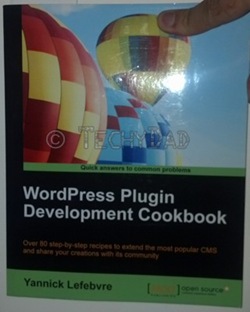The Intellectual Property of Tweets
![]() Last week, GaltsGirl tweeted a question to her followers. She asked "Are tweets entitled the same intellectual property courtesies as blog posts?" My answer was "If I’m using someone’s tweet for something I usually ask first. That said, I don’t see it as the same as a blog post IP-wise." Unfortunately, thanks to the limited nature of Twitter comments and my assumption that credit would always be given, this led to a bit of confusion. While I cleared up that confusion on Twitter (or, at least, I hope I did). The interaction did inspire me to write about it at length.
Last week, GaltsGirl tweeted a question to her followers. She asked "Are tweets entitled the same intellectual property courtesies as blog posts?" My answer was "If I’m using someone’s tweet for something I usually ask first. That said, I don’t see it as the same as a blog post IP-wise." Unfortunately, thanks to the limited nature of Twitter comments and my assumption that credit would always be given, this led to a bit of confusion. While I cleared up that confusion on Twitter (or, at least, I hope I did). The interaction did inspire me to write about it at length.
Tweets versus Blog Posts
Part of the problem stemmed from my use of the phrase "I don’t see it as the same as a blog post IP-wise." By this I meant that blog posts can be quoted without using the entire post. If you quoted this article in a blog post of your own, you could say that I wrote:
Unfortunately, thanks to the limited nature of Twitter comments and my assumption that credit would always be given, this led to a bit of confusion.
However, if you "quoted" me by copying my entire article word-for-word, that would be copyright infringement. Furthermore, while you should properly credit this quote, there would be no need to compensate me or even ask for my permission to use this quote. After all, while this entire post is my intellectual property, a quote falls under fair use. So copying this entire post to your blog could result in DMCA takedown requests, legal threats if those were ignored, and even large fines if the entire affair proceeded to the courts.
A tweet, on the other hand, is usually too small to quote part of effectively. To quote someone’s tweet, one usually has to use the entire thing. This begs the question: If using an entire blog post without permission is copyright infringement, is using an entire tweet infringement as well?
RTs and Inviting Infringements
On the Twitter platform itself, I’d say that quoting someone’s tweets isn’t copyright infringement. After all, Twitter itself gives a method for doing this: Retweets. What about off of Twitter, though? Is using someone’s tweet in a blog post, a book, or some other medium copyright infringement if explicit permission isn’t granted?
Let’ remove two obvious "fair use" cases immediately. If the quote is used for news reporting purposes ("Lady Gaga tweeted to her followers…") or parody, then permission isn’t required. It is good form to ask permission, of course, but it isn’t a requirement.
Let’s also assume that credit is given. If credit isn’t given, then I might be willing call it as infringement. If someone tweeted something so interesting, insightful, foolish, or otherwise useful to your larger project, it’s only fair that they should get credit for your words. You wouldn’t quote a passage in a book without stating what book that passage came from. Similarly, one should never quote a tweet without naming the user who tweeted it.
Beyond those cases, I have to admit that I’m torn. I’ve blogged about how you just can’t take an image off of Google Images and use it however you like. Grabbing someone’s tweet and sticking it in your post, at first glance, appears to be like grabbing a picture from Google Images and putting it in your post. However, the effort invested in a single tweet hardly seems to compare to the effort invested in making an image.
More Flexible Copyright Law
I think this example highlights the need to reform copyright law (something I’ve written about before). If copying a five hundred page book leads to a $750 fine, why would copying a one hundred forty character tweet hold the same potential fine? If copying an MP3 – which has a market value of $0.99 – leads to a $80,000 per song verdict, why would copying a tweet (market value of $0) lead to a similar fine?
In addition, profit motive should be considered when potential fines are calculated. If the quoted tweet is used in a non-profit manner (say, in a blog post such as this one), then any "infringement" fees should be minimal. If the quoted tweet was used in a for profit manner (say, a book titled "250 Great Tweets"), then infringement fees would be higher.
Protection of Public Statements
In the end, I consider tweets to be short public statements. One can’t stand in front of a big crowd of people, say something, and assume that *NOBODY* is going to quote them. Taking words out of context or not crediting them is unacceptable as is making money off of the tweet (in a non-news reporting, non-parody manner) without compensating the person. However, on the scale of copyright infringement, using someone’s tweet without permission isn’t anywhere near as bad as taking an entire blog post without permission.
PostScript
During my Googling for this blog post, I ran into an article about a similar issue. In this case, there was a lawsuit not over a tweet, but over a short quote from WIlliam Faulkner’s Requiem For A Nun. Sony Pictures used a nine word (97 character) quote from it ("The past is never dead. It’s not even past.") in the movie Midnight in Paris. The Faulkner estate worried that the use of the quote in the movie might confuse people into thinking there was a relationship between the estate and Sony Pictures. Sony Pictures, meanwhile, decried the lawsuit as frivolous. On the day that GaltsGirl posed her question, July 19th 2013, a ruling was handed down stating that such a short quote didn’t constitute copyright infringement.
A little closer to the topic at hand, I found a TechDirt story about a journalist who claimed her tweets were "off the record" and thus weren’t allowed to be repeated by anyone. When someone questioned her on this, she threatened a lawsuit. It doesn’t look like she ever went through with it, but she did see the inside of a courtroom when she was convicted of harassing a former boyfriend’s daughter by posting her private journals online. (Apparently she thought "off the record" tweets couldn’t be reposted, but private journals could be.)
This, in turn, led to more articles, including a 2009 blog post by Mark Cuban, all questioning just how copyrightable tweets are.

 If there’s one thing that working in IT has taught me, it’s that learning is never over. The minute you stop learning, your value to potential employers drops dramatically. Instead, one must constantly expand one’s horizons and learn new things.
If there’s one thing that working in IT has taught me, it’s that learning is never over. The minute you stop learning, your value to potential employers drops dramatically. Instead, one must constantly expand one’s horizons and learn new things. In
In 
